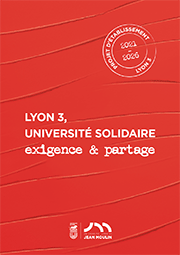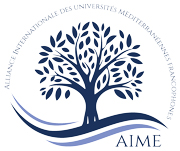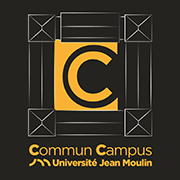AccueilRechercheProgrammes et productions scientifiquesThèsesThèses soutenuesThèses soutenues - 2006-2021Thèses soutenues - 2020
-
Partager cette page
- Recherche,
PELET Delphine
La notion de promoteur immobilier en droit privé français
Publié le 22 juin 2020 – Mis à jour le 22 juin 2020
Thèse en Droit, soutenue le 18 juin 2020.
La notion de promoteur immobilier est fonctionnelle, en ce qu’elle sert l’application d’un régime spécifique. En phase contractuelle, la réglementation du secteur protégé et la législation consumériste obligent le promoteur à se conformer à un grand nombre d’obligations à l’égard de l’accédant au logement. Postérieurement à la réception de l’ouvrage, le promoteur supporte en toutes circonstances les mêmes garanties légales que les constructeurs de métier, alors que les désordres matériels d’origine technique ne lui sont pas imputables. De surcroît, la jurisprudence met à sa charge une obligation de résultat résiduelle, visant à couvrir tout dommage ressortant du non-respect de son obligation de livrer un ouvrage conforme à la commande et aux règles de l’art. La notion de promoteur immobilier est par ailleurs plurivoque. Elle désigne à la fois le mandataire visé aux articles 1831-1 et suivants du Code civil, qui supervise l’opération au nom et pour le compte du maître d’ouvrage propriétaire du terrain à construire, et celui qui, selon les critères mis au jour par la jurisprudence, a « l’initiative et le soin principal de l’affaire ». Plusieurs définitions coexistent ainsi à l’heure actuelle : celle d’un promoteur « initiateur », qui est à l’origine de l’opération qu’il commercialise (en recourant à la vente d’immeuble à construire, voire à la vente d’immeuble à rénover ou à la vente d’immeuble achevé) et celle d’un promoteur « exécutant » ou « prestataire de services », qui représente le maître d’ouvrage dans l’exercice de ses attributions (au moyen d’un contrat de promotion immobilière ou de maîtrise d’ouvrage déléguée). Se pose en outre la question de la participation du promoteur à l’édification de l’ouvrage et celle de son identification éventuelle au constructeur de maisons individuelles.
Indépendamment des définitions jurisprudentielle et légale du promoteur immobilier, de nombreuses incertitudes entourent cette notion. Aussi est-il nécessaire de doter le promoteur immobilier d’une définition claire et exhaustive, permettant de lier le travail de qualification du juge. Selon une approche ratione materiae, il convient de déterminer avec précision le champ de son intervention, en délimitant l’objet de son activité de construction et de rénovation, et en détaillant les missions de montage et de suivi qu’il est susceptible d’assumer. Une telle analyse doit être complétée par une approche ratione personae, s’intéressant à la qualité de professionnel du promoteur et décrivant les formes statutaires empruntées par ce dernier. Plus largement, le travail de redéfinition de la notion ne présenterait qu’un intérêt théorique si le statut juridique qui va de pair n’était pas réévalué. En ce sens, puisque la notion de promoteur s’est construite sur la base d’un régime de responsabilité spécial, il convient de s’interroger sur son bien-fondé. Au surplus, malgré plusieurs tentatives avortées, l’instauration d’un statut professionnel propre au promoteur reste une question d’actualité, qui implique d’apprécier l’opportunité d’un contrôle des conditions d’accès et d’exercice de la profession.
Indépendamment des définitions jurisprudentielle et légale du promoteur immobilier, de nombreuses incertitudes entourent cette notion. Aussi est-il nécessaire de doter le promoteur immobilier d’une définition claire et exhaustive, permettant de lier le travail de qualification du juge. Selon une approche ratione materiae, il convient de déterminer avec précision le champ de son intervention, en délimitant l’objet de son activité de construction et de rénovation, et en détaillant les missions de montage et de suivi qu’il est susceptible d’assumer. Une telle analyse doit être complétée par une approche ratione personae, s’intéressant à la qualité de professionnel du promoteur et décrivant les formes statutaires empruntées par ce dernier. Plus largement, le travail de redéfinition de la notion ne présenterait qu’un intérêt théorique si le statut juridique qui va de pair n’était pas réévalué. En ce sens, puisque la notion de promoteur s’est construite sur la base d’un régime de responsabilité spécial, il convient de s’interroger sur son bien-fondé. Au surplus, malgré plusieurs tentatives avortées, l’instauration d’un statut professionnel propre au promoteur reste une question d’actualité, qui implique d’apprécier l’opportunité d’un contrôle des conditions d’accès et d’exercice de la profession.
The concept of real estate developer is functional, in that it serves the application of a specific scheme. In the contractual phase, protected sector regulations and consumer legislation oblige the developer to comply with a large number of obligations with regard to the purchaser of the accommodation. Following the reception of the work, the promoter supports in all circumstances the same legal guarantees as the builders of trade, while the material disorders of technical origin are not to be attributed to him. In addition, case law places a residual performance obligation on him, aimed at covering any damage arising from non-compliance with his obligation to deliver a work that conforms to the order and to the rules of the art. The concept of property developer is also multi-faceted. It designates both the agent referred to in articles 1831-1 et seq. of the Civil Code, who supervises the operation in the name and on behalf of the owner of the land to be built, and one who, according to the criteria set updated by case law, has "the initiative and the main care of the case". Thus several definitions coexist at present: that of a promoter who is an “initiator” at the origin of the operation which he markets (by resorting to the sale of buildings to be built, even to the sale of buildings to be renovated or the sale of completed buildings) and that of a "performing" promoter or a service provider who represents the building owner client in the exercise of his powers (by means of a contract of real estate development or of delegated project management). The question of the promoter's participation in the construction of the work and that of his possible identification with the builder of individual houses is also worth dealing with.
Apart from the jurisprudential and legal definitions of the property developer, many uncertainties surround this notion. It is therefore necessary to provide the property developer with a clear and exhaustive definition, making it possible to link the judge's qualification work. According to a ratione materiae approach, it is necessary to determine the scope of his intervention precisely, by delineating the object of his construction and renovation activity, and by detailing the assembly and follow-up missions that he is likely to assume. Such an analysis must be supplemented by a ratione personae approach, focusing on the professional quality of the promoter and describing the statutory forms taken by the latter. More generally, the work of redefining the concept would only be of theoretical interest if the legal status which goes hand in hand was not reassessed. In that sense, since the concept of promoter was built on the basis of a special liability regime, it is necessary to question its merits. In addition, despite several failed attempts, the establishment of a professional status specific to the promoter remains a topical question, which involves assessing the advisability of controlling the conditions of access and exercise of the profession.
Mots-clés : promoteur immobilier - maître d’ouvrage - accédant - secteur libre/protégé - garanties légales - obligations de moyens/de résultat - vendeur d’immeuble à construire - mandataire - professionnel de l’immobilier.
Keywords : property developer - building owner - buyer - free/protected sector - legal guarantees - obligations of means/result - seller of building property - agent - real estate professional.
Directeur(trice) de thèse : Blandine MALLET-BRICOUT
Membres du jury :
- Mme Blandine MALLET-BRICOUD, Directrice de thèse, Professeure des universités, Université Jean Moulin Lyon 3,
- Mme Solange BECQUE-ICKOWICZ, Professeure des universités, Université de Montpellier 1,
- M. Hugues PERINET-MARQUET, Professeur des universités, Université Paris II Panthéon-ASSAS,
- Mme Marianne FAURE-ABBAD, Professeure des universités, Université de Poitiers,
- M. Matthieu POUMAREDE, Professeur des universités, Université Toulouse 1 Capitole.
Président(e) du jury : Hugues PERINET-MARQUET
Documentation
Mise à jour : 22 juin 2020







